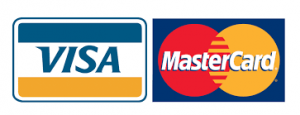Mobile Apps as a Sales Tool
Mobile Apps as a Sales Tool: Enhancing Engagement and Driving Revenue
Mobile apps have become essential in the modern business toolkit for enhancing customer engagement and boosting sales. With the proliferation of smartphones and the ever-growing reliance on mobile technology, apps are no longer just an optional component; they are a cornerstone of effective sales and marketing strategies. Here’s an in-depth look at how mobile apps serve as powerful sales tools.
1. Personalized Customer Experience
- Customized Content: Mobile apps allow businesses to deliver tailored content based on user preferences, behavior, and past purchases. Personalized recommendations foster a deeper connection and encourage repeat purchases.
- Push Notifications: Targeted push notifications enable brands to alert users about new product launches, special offers, and limited-time deals. These notifications, when used effectively, drive engagement and can lead to significant increases in sales.
- User Profiles and Preferences: Mobile apps can store user data, allowing for a seamless experience where customers don’t need to re-enter information. This convenience can increase purchase rates and customer loyalty.
2. Enhanced Accessibility and Convenience
- One-Tap Purchases: Mobile apps streamline the purchasing process by integrating payment systems such as digital wallets, Apple Pay, Google Pay, and saved credit card information. The ease of completing a transaction with minimal steps leads to higher conversion rates.
- Offline Capabilities: Unlike mobile websites, apps can offer some functionalities offline, such as product catalogs and user account details. This ability keeps users engaged even when connectivity is limited.
3. Engagement through Interactive Features
- Gamification: Integrating gamified elements, such as loyalty programs, rewards, and points-based systems, can create a more engaging user experience. Users are more likely to make purchases to earn rewards or unlock exclusive features.
- Augmented Reality (AR): Apps can use AR to allow customers to visualize products in real-time, such as seeing how furniture fits in their living space or trying on makeup virtually. This immersive experience can lead to higher user confidence and increased sales.
- In-App Chat and Support: Real-time support through chat features or chatbots ensures customers get their questions answered promptly, reducing purchase hesitations and abandoned carts.
4. Data Collection and Analytics
- User Insights: Mobile apps provide valuable data on how users interact with the platform. Metrics such as time spent, page visits, and purchase patterns help businesses refine their strategies.
- Feedback Loops: Integrated review systems and feedback prompts within the app allow companies to gather user opinions and improve products or services.
5. Integrating Social Commerce
- Sharing Features: Apps make it simple for users to share products or promotions via social media, email, or messaging platforms, effectively turning customers into brand advocates.
- User-Generated Content: Some apps encourage users to share their experiences or photos using products, adding credibility through authentic user reviews and boosting sales through peer influence.
6. Location-Based Services
- Geo-Targeting and Notifications: Location tracking capabilities allow apps to send relevant promotions to users based on their geographical location. For example, a retail app can send push notifications for in-store discounts when a user is near a physical location.
- Local Market Customization: Apps can adapt product offerings and language preferences based on the user’s region, making them feel catered to and increasing the likelihood of a purchase.
7. Loyalty and Rewards Programs
- Integrated Loyalty Programs: Apps can seamlessly incorporate rewards programs, encouraging repeat business. Customers can easily track their points and redeem them directly from the app, fostering brand loyalty.
- Exclusive Deals for App Users: Providing app-only discounts or early access to sales incentivizes customers to download and engage with the app.
Challenges to Consider
While mobile apps offer significant benefits as a sales tool, businesses must navigate certain challenges:
- Development and Maintenance Costs: Creating and maintaining an app can be resource-intensive, requiring regular updates, security patches, and feature enhancements.
- User Retention: Apps must offer real value beyond just being a mobile version of a website; otherwise, users may delete them after a single use.
- Competition: The app market is crowded, and it’s crucial for a business to differentiate its app with unique features and superior user experience.
Conclusion
Mobile apps as a sales tool have reshaped the way businesses engage with consumers. By offering personalized experiences, enhancing convenience, and incorporating interactive features, apps can significantly boost sales and customer loyalty. However, to maximize the benefits, businesses need to ensure their apps are user-friendly, offer true value, and evolve with changing technology trends and consumer expectations. As mobile technology continues to advance, the role of apps in sales strategies is set to become even more integral.

